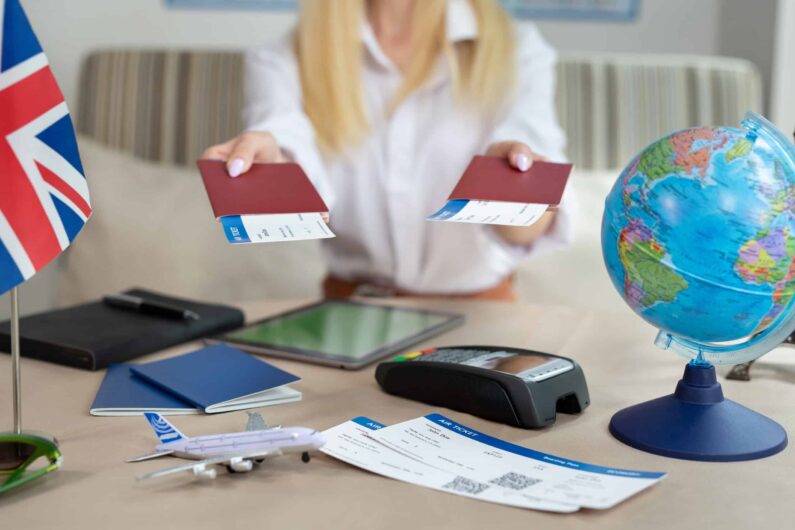Building up an international brand from scratch is a fascinating and creative task. However, we are fully aware that it can be extremely challenging, and at times quite overwhelming.
You have to take into account many various factors, anything from the company’s funding, to the building of infrastructure. Furthermore, you must map out the brand’s identity, also known as branding.
Branding is about making you stand out from your competitors. You must explain what it is that your business offers, and what makes you better than the rest.
It has to be a clear and authentic representation of your company and how you would like to be perceived by the public.
If you are thinking of establishing an international company, then you have some necessities that you have to consider during your branding process.
Choosing the name of your global brand
Choosing the name of your business requires a lot of work and time. For this very reason, it is one of the most important parts of the branding process.
Before you start, you must first decide where your head office will be located. If you choose Spain as your base, you must be up-to-date with the country’s laws when selecting your brand’s name, particularly if you have decided not to create an independent business.
When you register your company as a private limited company in Spain, you must ensure that the name that you have chosen isn’t already registered with another business in the area.
You can find this out by using information provided on social media, or by consulting the central register.
Once you have chosen a name, you can register it as a brand, and you will then have a domain name for your company.
If your headquarters is located abroad, you should verify all the necessary requirements needed to validate your company’s brand. This way, you will not receive any unwanted demands.
Hastily choosing a brand’s name can be tempting, however, it’s essential that you take the time to sit down and think about it carefully.
Every small detail and changing of the brand’s name can directly impact the possibility of national or international success.
A brand’s image and logo
Another important factor is choosing your logo, as this symbol is your brand’s identity. You must select a design that is unique, attractive, practical, simple, and appropriate.
There are intrinsic values that logos bring to your business, and this is something that you must bear in mind when you are creating a global company.
A perfect example of a design that encapsulates these design aspects is the Nike Swoosh. It is one of the most distinguishable emblems globally, and its design is very simple, yet extremely effective.
The design of “The Swoosh” symbolises motion and speed, which reflects the company’s line of work, as well as what its consumers desire to get out of their products.
Selecting your company’s name is as important as undertaking market research. It is essential that you understand the cultural characteristics and personal preferences of the local area.
Undertaking some research beforehand will allow you to avoid any misunderstandings about your brand.
This applies to any symbol you use to promote your business. Using images that are relevant to your own culture can be misunderstood or misinterpreted by your target audience.
A good way of avoiding this, is to get feedback on your brand from your local community.
You can also use a professional localisation service as to ensure that your logo is understood and is culturally appropriate.
Translating marketing content
Another important thing to mention when it comes to branding, is marketing content. This content is important not only for attracting potential customers, but also because it enables you to connect with your clients.
Nowadays, clients have high expectations about the quality of the product, and the consistency of the content from the brands they choose to buy from.
When you create an international business, the localisation of the marketing content isn’t the only thing that needs translating.
It is vital that you study your target audience that you will be addressing on a daily basis, taking into account their customs, religion, as well as their social behaviours and business ethics.
Furthermore, you must make sure that you work alongside people that fully understand the culture of the market which you are approaching.
Never promote, share, or publish any type of material for an international audience without consulting with someone who has an extensive knowledge of the language and culture of your target market beforehand.
It is essential that no phrase is misinterpreted by the local people, because this can damage your business’s reputation. If you are having difficulties accurately translating and localising your marketing content, you can have a look at our marketing translation services, and get your free quote today.
Things to consider:
- Brand identity: the brand should maintain your identity in every language that you chose to translate it into. It is important that the brand communicates the same values and message in each language.
- Cultural background: every culture has its own values, traditions, and beliefs. Therefore, it is important to consider the cultural background of every language when translating your brand.
- Consistency: the translation of every point of contact of your brand should be coherent, including your website, publicity, social media, packaging, and communication with your clients.
- Adaptability: when translating a brand, it is fundamental that you are able to adapt, as this ensures that you remain relevant and have an effective impact within the local market.
- Lawfulness: ensure that the translation carried out respects all of the local laws and regulations, including labelling, copyright, and trademark rules.
- Reputation: the brand should maintain its reputation within the market in which you translate your content for. Translating a brand should be effective, and respectable in both the source and target language.
- Understanding a language: the translation of your content should be carried out by professional translators who have a strong grasp of the language, culture, slang, and idiomatic expressions used in the local dialect.
- Target audience: It is important to consider your target audience when translating your brand. This includes factors such as age, sex, educational background, faith, and geographical location.
- Brand’s positioning: when translating your brand, it is important to consider how you will position yourself in the local market, and how you will fare against your competitors.
- Effective communication: The translation should be clear, concise, and effective, so that your brand communicates effectively with the local market.
Hire the services of a professional translation agency
After taking into account all of these elements, you will understand the steps you have to take in order to create a well-established global brand. However, don’t forget that as well as the branding, it is also in your best interest to constantly monitor and check that your global brand is following up on its original promises.
When you are ready to start expanding out into international markets, you will need the help of a translation agency that you can trust.
At BeTranslated, we rely on expert translators and experienced project managers that can help ensure that your business’s content is well received by your new audience, whether that is in French, Spanish, German, etc.
Get in touch with us today to find out more about our services available to you, and get a free, no-obligation quote.





